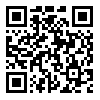Volume 6, Issue 3 (Vol6,No3(21) 2025)
2025, 6(3): 0-0 |
Back to browse issues page
Ethics code: IR.USWR.REC.1402.223
Download citation:
BibTeX | RIS | EndNote | Medlars | ProCite | Reference Manager | RefWorks
Send citation to:



BibTeX | RIS | EndNote | Medlars | ProCite | Reference Manager | RefWorks
Send citation to:
Nourian Z, Momeni F, Dolatshahee B. (2025). Effectiveness of Brief Exposure-Based Intervention on Self-Efficacy in Coping with Nighttime Fears in 4 to 8 Years Children. Journal of Childhood Health and Education. 6(3),
URL: http://jeche.ir/article-1-314-en.html
URL: http://jeche.ir/article-1-314-en.html
1- Master’s student of Child and Adolescent Clinical Psychology, Clinical Psychology department, University of Social Welfare and Rehabilitation sciences, Tehran, Iran
2- Assistant Professor, Clinical Psychology department, University of Social Welfare and Rehabilitation sciences, Tehran, Iran
3- Associate Professor, Clinical Psychology department, University of Social Welfare and Rehabilitation sciences, Tehran, Iran
2- Assistant Professor, Clinical Psychology department, University of Social Welfare and Rehabilitation sciences, Tehran, Iran
3- Associate Professor, Clinical Psychology department, University of Social Welfare and Rehabilitation sciences, Tehran, Iran
Abstract: (640 Views)
Introduction: Nighttime fears are very common in children, but most children outgrow them as they get older. However, in some children, these fears become more severe and persist into adolescence. The present study aimed to investigate the effectiveness of exposure-based therapy on the self-efficacy of 4- to 8-year-old Iranian children in coping with nighttime fears.
Research Method: In this study, a single-case experimental design with multiple asynchronous baselines was used. The statistical population consisted of 4- to 8-year-old children with nighttime fears living in Tehran, 6 of whom were selected as samples using purposive sampling based on inclusion criteria. After a baseline assessment, the subjects received an exposure-based intervention for 8 weeks. This intervention was carried out by parents using reading book and playing games with the child. The What My Child Can Do at Night in the Dark questionnaire (Coffman, 1987) and a sleep report form were used to collect data. In order to analyze the data, the visual analysis method and calculation of the percentage of improvement and impact factor were used.
Results: In this study, the average scores of the subjects increased from 95.7 at baseline to 37.16 during the intervention period and 33.18 during the follow-up period. And the subjects achieved an overall effect size of 62.4, 75.56% improvement at the end of treatment and 75.56% improvement at follow-up. Overall, the results show that exposure-based therapy can have a significant effect on increasing self-efficacy in dealing with nighttime fears.
Discussion: The findings show that subjects after receiving exposure-based therapy, had greater self-efficacy in dealing with their nighttime fears and were able to sleep alone in their dark room for more nights.
Research Method: In this study, a single-case experimental design with multiple asynchronous baselines was used. The statistical population consisted of 4- to 8-year-old children with nighttime fears living in Tehran, 6 of whom were selected as samples using purposive sampling based on inclusion criteria. After a baseline assessment, the subjects received an exposure-based intervention for 8 weeks. This intervention was carried out by parents using reading book and playing games with the child. The What My Child Can Do at Night in the Dark questionnaire (Coffman, 1987) and a sleep report form were used to collect data. In order to analyze the data, the visual analysis method and calculation of the percentage of improvement and impact factor were used.
Results: In this study, the average scores of the subjects increased from 95.7 at baseline to 37.16 during the intervention period and 33.18 during the follow-up period. And the subjects achieved an overall effect size of 62.4, 75.56% improvement at the end of treatment and 75.56% improvement at follow-up. Overall, the results show that exposure-based therapy can have a significant effect on increasing self-efficacy in dealing with nighttime fears.
Discussion: The findings show that subjects after receiving exposure-based therapy, had greater self-efficacy in dealing with their nighttime fears and were able to sleep alone in their dark room for more nights.
Type of Study: Applicable |
Subject:
Special
Received: 2025/01/17 | Accepted: 2025/10/7 | Published: 2025/12/16
Received: 2025/01/17 | Accepted: 2025/10/7 | Published: 2025/12/16
Send email to the article author
| Rights and permissions | |
 |
This work is licensed under a Creative Commons Attribution-NonCommercial 4.0 International License. |



